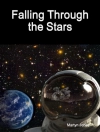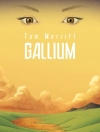Embark on a literary journey through ‘The Anthology of the Greatest Sci-Fi Classics, ‘ a meticulously curated collection that weaves together an expansive tapestry of imagination and foresight. This anthology showcases a wide array of themes ranging from the prophetic visions of future societies to haunting explorations of human nature and scientific endeavors. Each piece stands as a testament to the rich diversity of the science fiction genre, overcoming the boundaries of time with a timeless appeal in style and substance. Within this excerpt of literary luminaries, standout stories challenge the reader with their inventive foresights, leaving an indelible mark on literature and culture alike. The famed contributors, including revered names like Jules Verne, Mary Shelley, and H.G. Wells, come from varied backgrounds, each bringing unique insights that echo the dynamic evolution of sci-fi. Forged in the crucible of the Industrial Revolution’s clamor, these authors have painted narratives colored by both skepticism and fascination with technology and progress. The anthology shines as a historical lens through which the progression of speculative fiction is observed; a confluence of voices that captures the essence of human curiosity and existential introspection prevalent throughout the ages. This collection offers readers an unparalleled opportunity to engage with the cradle of science fiction, providing an enlightening compendium of diverse perspectives and literary artistry. It invites the curious mind to traverse the boundaries of thought through profound narratives that inspire reflection on both the known and the possible. Whether for scholarly study or personal exploration, ‘The Anthology of the Greatest Sci-Fi Classics’ promises to enrich understanding of the speculative genre’s profound impact on societal lenses and collective imagination.
Circa l’autore
Jules Verne (1828-1905) was a pioneering French novelist, poet, and playwright, known as one of the fathers of science fiction. His prodigious body of work, characterized by elaborate plots, a visionary blend of scientific fact and fiction, and richly imagined futures, has profoundly influenced the science fiction genre. Among his most celebrated works is ‘The Anthology of the Greatest Sci-Fi Classics, ‘ a collection that embodies his masterful storytelling and innovative ideas. Verne’s career as a writer spanned over four decades, during which he authored more than sixty novels, including seminal works such as ‘Twenty Thousand Leagues Under the Sea, ‘ ‘Journey to the Center of the Earth, ‘ and ‘Around the World in Eighty Days.’ His literature often features explorers, inventing new modes of transportation—submarines, airships, and spacecraft—long before they were practical realities, demonstrating his remarkable foresight. Verne’s narrative style is marked by an educational intent, laced with intricate details of scientific principles and geographic information of his time. As a member of the Académie Française, Verne’s influence extended beyond literature; he inspired generations to look to the horizon and beyond. His writings continue to be popular, translated into numerous languages, and adapted into various media, reflecting his timeless appeal and his status as a cornerstone of not just French literature, but of global culture.












